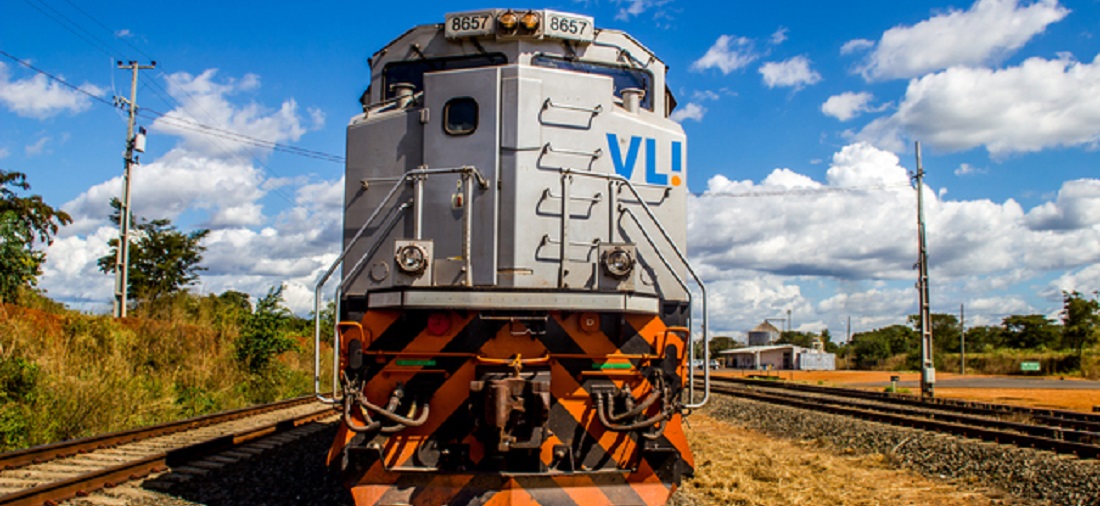
VLI launches semi-autonomous operation at Brazil’s Centre-North railway corridor
Oct, 19, 2022 Posted by Gabriel MalheirosWeek 202242
Nearly 50 rail cars in Brazil’s Centre-North Railway Corridor now employ the Driving Assistant technology, meaning that when the train reaches speeds of more than 8 km/h, semi-autonomous driving may be activated, which aims to achieve the best performance in energy efficiency and, indirectly, contributes to CO² emissions reduction. The company estimates the technology will save 3.5% on fuel.
VLI’s rolling stock engineering manager, Julio Bicalho, explains that the system has been adapted to the specificities of Brazilian railroads. “We ran several field tests before launching the operation. To make it even better, we continuously improved the system.” The manager of Operation Engineering and Technology at VLI, Fabrício Frade, highlights that the train’s control capacity increases with each new version of the software. “In the beginning, it controlled 20% of the stretch, and today this percentage has grown to between 70% and 80%”, he emphasizes.
Julio Bicalho states that train drivers keep playing an essential role, for example, in hitting the brake when the train is traveling below the minimum speed for automatic driving and in tracing contingency plans when faced with unplanned variables. “The driver will remain the eyes of the train, responsible for supervising the system’s performance and reclaiming control when deemed necessary.”
Partnership
The semi-autonomous operation of trains is carried out in collaboration with Progress Rail, a Caterpillar subsidiary that has provided rail products and services since 2006. It is one of the world’s largest integrated and diverse infrastructure providers, rolling stock, and technology to global rail customers.
The Leader system, which optimizes driver performance and is present in most of VLI’s current fleet, is the result of this collaborative effort. According to Fabricio Frade, Leader is developed by New York Air Brake (NYAB). “With the assistance of NYAB, VLI and Progress Rail are installing and customizing software for VLI’s reality.”
According to Julio Bicalho, VLI and Progress Rail have been pioneers in operations with metric gauge AC technology locomotives in Brazil since their partnership for locomotive manufacturing and acquisition. AC technology allows the locomotives to circulate more efficiently, bringing several benefits, including an increase in tractor effort that allows adding a greater number of wagons to the train.
Another partnership in the technology package, according to the rolling stock manager, was the implementation of AESS (Automatic Engine Start and Stop) in the locomotives. This system turns the locomotives off and on when the trains stop. “New locomotives already have this technology; however, the older fleet does not. The AESS system adaptation project was implemented in approximately 80 locomotives to contribute to consumption efficiency, resulting in fuel savings of approximately 1.2%.”
Fuelytics
Another tool that the company has developed and implemented to reduce fuel consumption is Fuellytics. The solution correlates operational variables and identifies opportunities for improvement to optimize energy efficiency to lead to less fuel use. With this technology, in 2021, VLI recorded savings of 1.2 million liters of fuel, which reduced the emission of 3.57 thousand tons of CO².
-
Meat
Aug, 16, 2020
0
Brazil and China work on Covid-19 protocol to avoid drop in chicken exports
-
Meat
Jan, 24, 2024
0
Exports to drive Brazil’s chicken meat industry in 2024
-
Ports and Terminals
Apr, 24, 2024
0
ANTAQ holds public hearing on area bidding at Port of Itajaí
-
Ports and Terminals
Sep, 06, 2021
0
Rare stern mooring at Paranaguá


